THE TOWN (2010)
A group of thieves rob a bank and hold the manager hostage, but things are complicated when one of them falls in love with her.
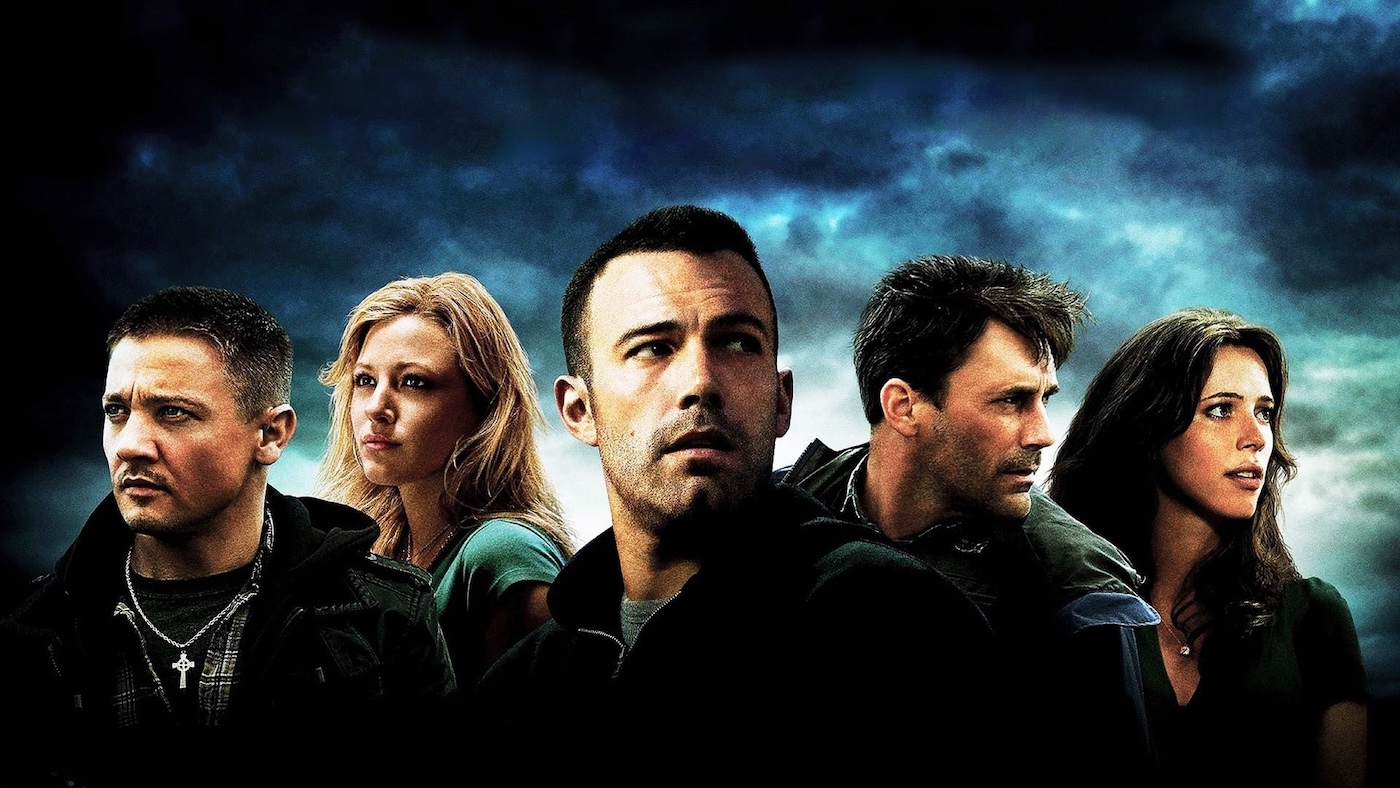
A group of thieves rob a bank and hold the manager hostage, but things are complicated when one of them falls in love with her.

Actors who end up behind the camera directing films are not exactly a new development. Orson Welles has to be one of the earliest that comes to mind. The legendary filmmaker had already performed in the theatre and on the radio before he filmed his first feature, Citizen Kane (1941), and the rest, as we all know, is history. Welles wasn’t the only one from that era: The Night of the Hunter (1955) keenly demonstrated Charles Laughton’s impressive filmmaking skills, unfortunately only once, as the classic thriller was bizarrely met with critical scorn upon its release, and as a result, Laughton never went back to the directing chair.
Since then, we’ve seen the likes of Ron Howard, Mel Gibson, Jodie Foster, Barbra Streisand, Greta Gerwig, Bradley Cooper, and of course, Clint Eastwood, all delivering excellent films over the last few decades. However, there’s one other big-name actor who’s also been quietly crafting some superb movies, and that’s Ben Affleck. I use the word cautiously here, because while a few films from his back catalogue have been major commercial and critical hits, his public persona and acting often appear to cast some sort of shadow over his directorial achievements, which is a shame, as I think he’s as good a director—if not better—than some of those other aforementioned famous names.
Case in point: Affleck has been responsible for directing four (out of five in total) movies that were all praised by critics and audiences alike. His first feature, Gone Baby Gone (2007), was based on the 1998 novel by bestselling author and screenwriter, Dennis Lehane. The story, set in Boston, is about two private detectives who are hired to find a young girl who’s been abducted from her single mother’s flat. The film boasts an all-star cast, including Ed Harris, Morgan Freeman, Michelle Monaghan, and the director’s younger brother, Casey Affleck. Proving to be a taut and exciting thriller, Gone Baby Gone, while not a massive box office hit, still earned many glowing reviews from critics worldwide.
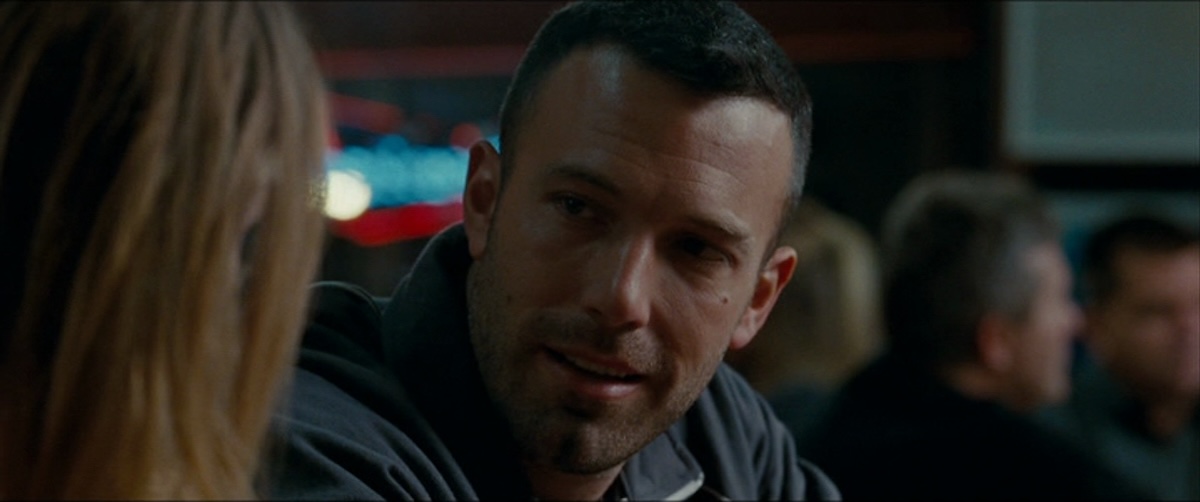
Argo (2012), Affleck’s biggest success, concerning the true story of CIA exfiltration specialist Tony Mendez (played by Affleck) who is tasked with rescuing six US diplomats who’ve been hiding at the Canadian ambassador’s home in Tehran following the storming of the American embassy by Iranian Islamists in 1979. Mendez comes up with the ‘best bad idea’ to pose as a film producer scouting locations in Iran for a sci-fi movie called Argo, and once there, to bring the six diplomats back to the States under the guise that they are all part of the film crew. Made for a modest $44.5M, Argo went on to earn $232M, while also winning three Academy Awards, including ‘Best Picture’ and ‘Best Adapted Screenplay’. Affleck’s most recent movie, Air (2023), was a biographical sports drama about how a Nike employee made a deal with basketball star Michael Jordan so they could produce their famous line of Air trainers. Starring Matt Damon, Jason Bateman, Damon Wayans, and Affleck, Air received positive reviews and two Golden Globe nominations.
While these achievements are impressive in their own right, it’s the actor-director’s second film, The Town, that I’m now focusing on. Coming just three years after Gone Baby Gone, this crime thriller, from a novel called Prince of Thieves about a gang of bank robbers, proved that Affleck was no ‘one-trick pony’ and showed that he was more than capable of delivering a fast-paced, exciting—and thoughtful—movie; one that explores the working-class side of a Boston suburb, while at the same time being a character-driven piece too. Where some lesser films of a similar nature may only feature one-dimensional stereotypes, The Town not only focuses on the criminals involved, it also examines how traumatic and life-changing it is for an innocent bystander who’s taken hostage during one of their heists.
Prince of Thieves’ origins can be connected to the film’s opening caption: ‘One blue-collar Boston neighbourhood has produced more bank robbers and armoured car thieves than anywhere else in the world, “Bank robbery became like a trade in Charlestown, passed down from father to son.” —Federal Agent; Boston Robbery Task Force. While this statement reads like an actual piece of statistical truth, the reality is that it’s embellished information. However, official crime statistics do suggest there was indeed a high rate of robberies during the 1980s and 1990s, and this data was most likely, at least in part, the source inspiration behind novelist Chuck Hogan’s 2004 novel. The area’s mythology —equal parts fact and embellishment—provided much creative space for a story blending procedural detail, hard-hitting action and violence, against themes of loyalty, morality, and destiny. In adapting Hogan’s work, Affleck collaborated with screenwriters Peter Craig and Aaron Stockard to distil the novel’s expansive scope into a tightly focused narrative that placed character relationships at the forefront of the screenplay.
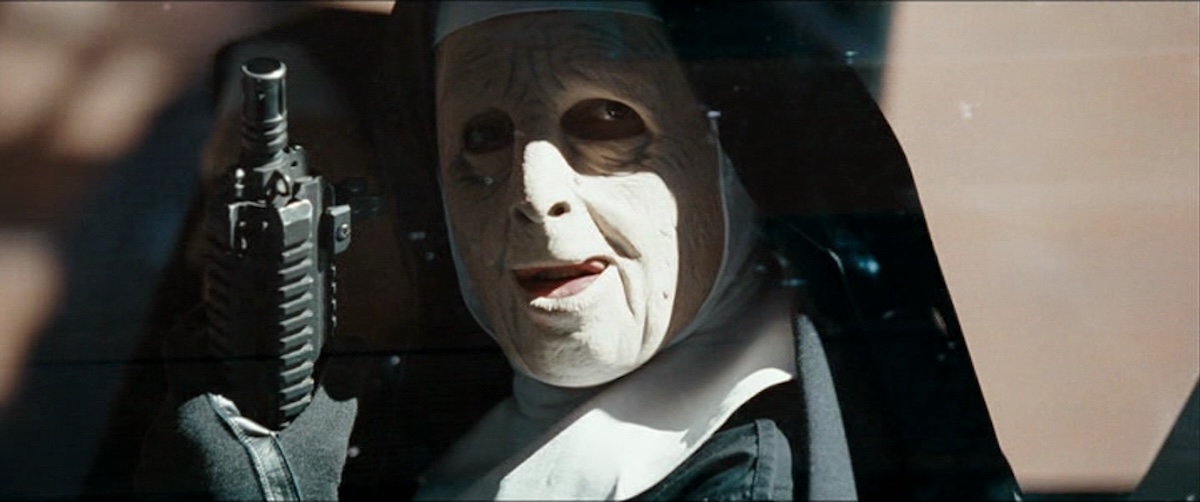
The movie doesn’t waste any time getting to the action: immediately after this caption you see Affleck’s character (Doug MacRay) sitting in a van discussing the heist with the rest of the gang. A security guard walks from his van into the bank. Cut to silent black and white CCTV camera footage of inside the bank, just as the robbers rush in behind the guard and into the building. In a bold creative move, director Affleck opts to have no music playing in the background; instead, for the first minute or so, the sequence keeps jumping from the robbery and the terrified people inside, back to the silent CCTV footage.
A masked Affleck picks out the manager, Claire Keesey (Rebecca Hall), and walks her over to the locked safe. After she opens it, the thumping soundtrack begins as we watch the gang expertly empty the safe. Unbeknownst to the robbers, Claire has set off the alarm with her foot while lying down. One of the robbers thinks the assistant manager has set it off and brutally beats him with the butt of his rifle. While leaving, they take Claire with them in case they get caught. Once at a safe distance, they let her out, but afterwards find her driving licence and realise she lives in their neighbourhood. Affleck opts to keep tabs on her so as to find out if she poses a threat to their identities—and this is where the story really begins. From here, the script interestingly takes its time to show Doug and Clare forming a relationship, and as the film progresses, you see where and how these criminals live, their future heists, and ultimately, how their lives turn out.
Despite the film’s many technical merits, what makes The Town work so well is its ensemble cast, all bringing memorable and believable performances to the proceedings. Along with Affleck and Hall, a young Jeremy Renner is one of the major standouts. Coming fresh from his Academy Award-nominated role in Kathryn Bigelow’s brilliant The Hurt Locker (2008), Renner plays Doug’s lifelong friend James Coughlin. Where Doug appears to be relatively grounded and well-adjusted, Coughlin is quite the opposite: he’s prone to paranoia, hot-tempered, and when pushed, frighteningly capable of using his fists or a gun against anyone he deems to be a threat. From the first time you see him, Renner’s acting is on point throughout: never resorting to hamming it up, he makes what could have been an over-the-top part into something altogether nuanced and fully-rounded.
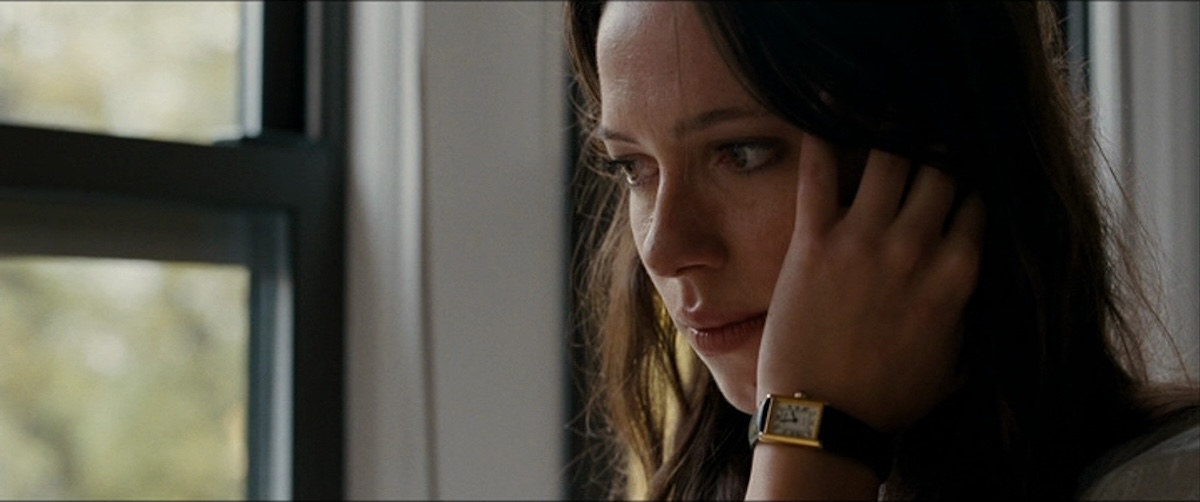
Blake Lively (It Ends with Us) also turns up as Coughlin’s sister and one-time girlfriend Krista. To say she’s almost unrecognisable is something of an understatement. Her character is that of a single mother who deals drugs and is well-known around the area for all the wrong reasons. Apart from her cheap and provocative wardrobe, her Bostonian accent is, I think anyway, excellent. She looks and sounds like someone who could actually live in that part of America. Rounding off this impressive cast are Jon Hamm (Baby Driver) as Special Agent Adam Frawley, Chris Cooper (The Bourne Identity) as Doug’s father Stephen MacRay, and the late, great British actor Pete Postlethwaite (In the Name of the Father) as gang leader Fergus Colm. All of these names, while not having a great deal of screen time, still add much depth to the film—particularly Postlethwaite, who still manages to convey menace and threat without saying much.
As much as The Town relies heavily on its characters to propel the story along, Affleck’s use of real settings, from narrow brick-lined alleys to the iconic backdrop of Fenway Park stadium, reinforces the film’s sense of authenticity. His direction demonstrates a keen eye for balancing kinetic action sequences with scenes of intimate drama. The armoured car heist, staged in broad daylight with unnerving precision, and the climactic shootout are thrilling in their choreography, yet none of these powerful sequences are just utilised for sheer audience enjoyment; they all drive the narrative along and add texture to the story.
Robert Elswit’s (There Will Be Blood) cinematography contributes significantly to the film’s tone. Elswit shows off Boston in muted, steel-grey hues and stark sunlight, while avoiding that typically over-used shaky-cam footage during the action scenes. The overall effect subtly draws you into the movie; very understated but still highly effective. Along with the first-rate visuals, Harry Gregson-Williams and David Buckley’s score provide a subdued but insistent pulse, making for a tense and exhilarating soundtrack throughout.
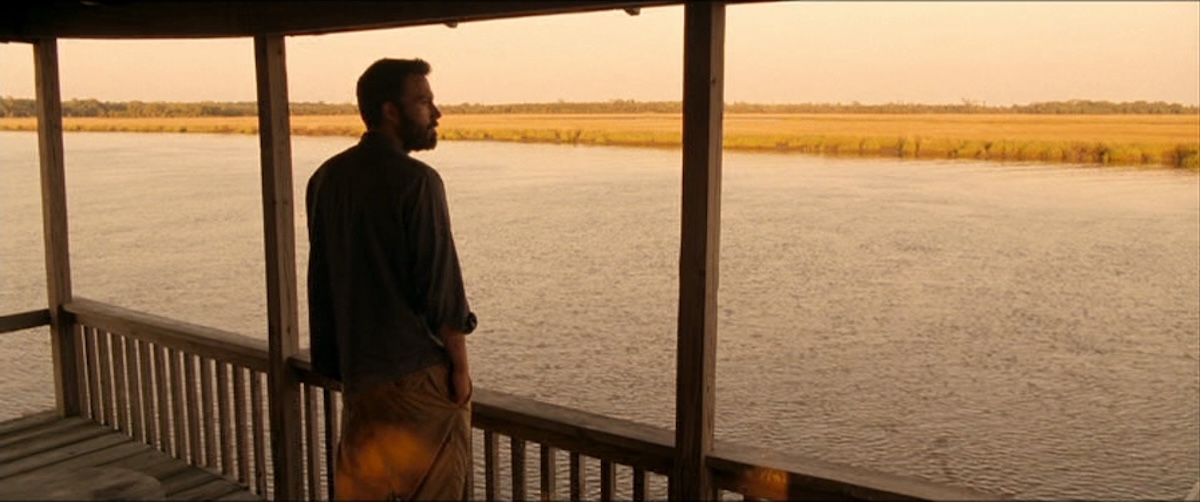
Critically, The Town was met with much approval. Reviewers praised Affleck’s confident direction, Renner’s electrifying performance, and the film’s balance between genre convention and emotional weight. A.O Scott from The New York Times commented that the opening heist “is lean, brutal, and efficient, and evidence of Mr Affleck’s skill and self-confidence as a director.” Roger Ebert gave the film 3/4 stars, praising Renner’s performance and Affleck’s direction. Commercially, it earned $92.1M in the US and Canada with an additional $61.8M in other territories for a total of $154M worldwide.
Rewatching the film again for this review (first time in about three years), I can only pick out one or two issues that stop this from being a five-star masterpiece. The first is because it treads across similar ground to that of an actual crime classic, Michael Mann’s Heat (1995). You can forgive Affleck for most likely taking some ideas from this film, after all, as the saying goes: ‘if you’re going to steal, steal from the best’, or something like that. Anyway, with such similar plot points and themes, such as misguided loyalty, destiny/fate, and loneliness, the end result is something akin to lacking originality. You could argue that this is an unfair statement as you could probably name at least five other movies that came before Heat that all contain these same thematic beats, but the problem here is that because Heat had such an impact, through its excellent storytelling, acting, social commentary on the human condition, its cultural resonance remains fairly present even today.
One other minor complaint I have is down to a plot element. This is when Rebecca Hall’s character Claire makes a decision at the end that, for me anyway, strains credibility to the point that it almost casts a shadow over the rest of the film. But something very similar again happens in Heat, so maybe I’m nitpicking now. With that said, The Town is still a cracking movie; its characters look and sound believable, the heist set-pieces are expertly executed, plus it barrels along at a pace but never feels rushed, and the acting by all concerned is strong. The heart of the story rests with relationships: for the criminals, the community around them, and Doug and Claire’s romantic connection. And it’s here where this film really shines. Affleck and Hall’s scenes together are some of the film’s genuine highlights, their on-screen chemistry never feels fake, which is what makes their story arc all the more tragic. On the evidence of this, and those other Affleck-helmed films, I can’t wait to see what he comes up with next.
USA • UK | 2010 | 124 MINUTES | 2.39:1 | COLOUR | ENGLISH

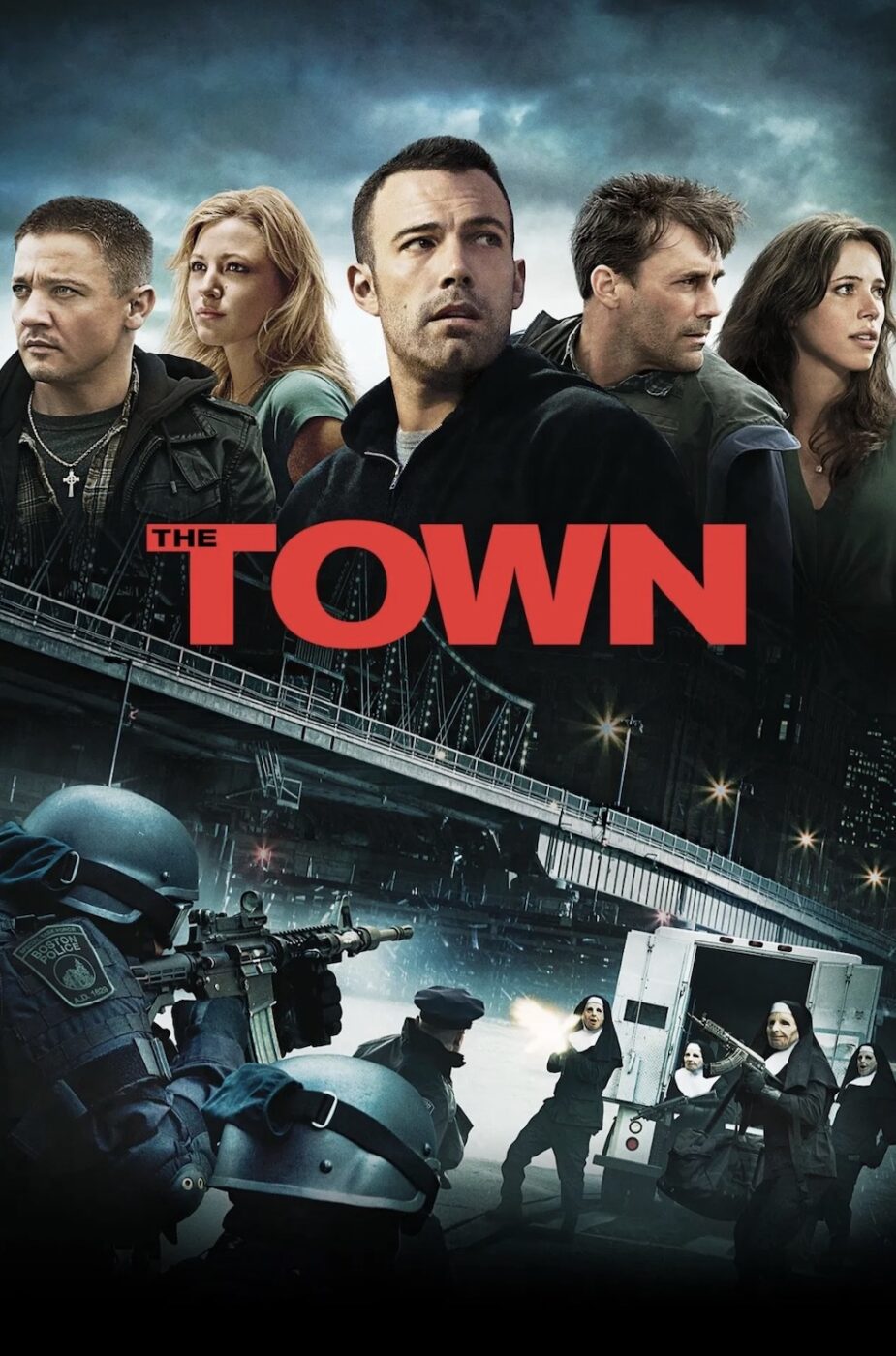
director: Ben Affleck.
writers: Peter Craig, Ben Affleck & Aaron Stockard (based on ‘Prince of Thieves’ by Chuck Hogan).
starring: Ben Affleck, Rebecca Hall, Jon Hamm, Jeremy Renner, Blake Lively, Chris Cooper & Pete Postlethwaite.
